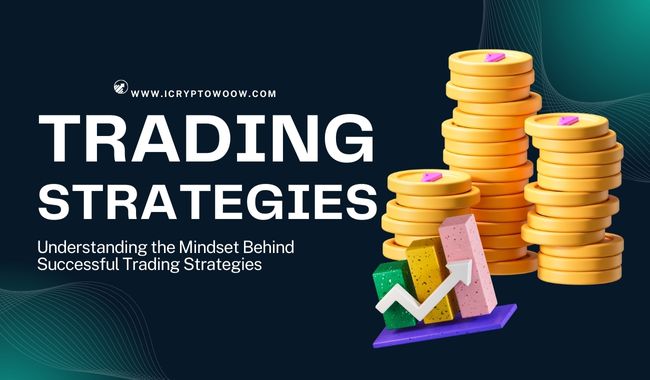
Introduction to trading and its mindset
Trading is often seen as a high-stakes game where fortunes can shift instantly. However, many must pay more attention to the underlying mindset that drives successful trading strategies. It’s not just about numbers or charts; it’s a psychological battle within.
Every trader has experienced moments of doubt and fear. The thrill of winning can quickly become the agony of loss, leaving even seasoned pros questioning their abilities. Understanding this mental landscape is crucial for anyone looking to thrive in trading.
As we delve deeper into the intricate relationship between psychology and trading success, you’ll discover how to navigate common barriers and cultivate a strong trader mindset. Join us on this journey to unlock the secrets behind effective trading strategies!
The role of psychology in trading success
Psychology is critical in trading success, influencing decisions at every turn. Traders often face intense emotional pressure, leading to impulsive choices or missed opportunities.
Fear and greed are two powerful emotions that can cloud judgment. A fear of loss might prompt an early exit from a trade, while excessive greed may encourage taking unwarranted risks. Recognizing these feelings is essential for maintaining control over one’s actions.
Discipline is another psychological pillar in trading. Sticking to a well-defined strategy requires mental fortitude, especially during volatile market conditions. Successful traders cultivate patience and resilience, allowing them to weather short-term fluctuations without deviating from their plans.
Self-reflection and continuous learning help traders adapt their strategies based on past experiences. This mindset fosters growth and improvement, making psychology vital to effective trading strategies.

Common psychological barriers in trading
Many traders face psychological barriers that can hinder their success. Fear is one of the most common obstacles. It often manifests as hesitation to execute trades, especially after experiencing losses.
Overconfidence can be equally damaging. When traders believe they cannot fail, they may overlook crucial market signals and make impulsive decisions.
Another significant barrier is loss aversion—the tendency to avoid losses over acquiring equivalent gains. This mindset can lead to holding onto losing positions for far too long or exiting winning trades prematurely.
Confirmation bias also plays a role; traders sometimes seek information supporting their beliefs while ignoring contradictory evidence.
These mental hurdles highlight the importance of emotional discipline in trading strategies. Recognizing these barriers is the first step toward overcoming them and enhancing overall market performance.
Critical elements of a successful trading strategy
Successful trading strategies hinge on several key elements that can make or break a trader’s journey.
First, a well-defined plan is essential. This includes straightforward entry and exit points, risk management rules, and profit targets. Without this blueprint, traders often find themselves lost in market fluctuations.
Next comes disciplined execution. Adhering to your strategy amid emotional turmoil separates successful traders from those who falter. It’s easy to stray when fear or greed creeps in.
Another critical element is continuous learning. Markets evolve, and so should your approach. Stay informed about market trends and economic news to refine your strategy over time.
Adaptability plays a vital role. The best strategies are flexible enough to adjust to changing conditions while maintaining their core principles.
Incorporating these components fosters strategic success and confidence in decision-making processes within the trading arena.
Case studies of successful trading strategies
Examining real-life examples can illuminate effective trading strategies. One notable case is George Soros, who famously shorted the British pound in 1992. His conviction and analysis allowed him to capitalize on market inefficiencies, resulting in a profit exceeding $1 billion.
Another compelling example is Paul Tudor Jones. He mastered risk management by using stop-loss orders, which enabled him to limit losses while maximizing gains during trends he identified through technical analysis.
Then there’s Kathy Lien, known for her forex expertise. She emphasizes combining fundamental and technical indicators, leading to well-informed trades that minimize emotional decision-making.
These traders demonstrate how a blend of research, discipline, and psychological resilience can culminate in impressive success stories. Each strategy reflects adaptability and continuous learning—critical traits for aspiring traders looking to refine their approach.
Tips for developing a winning trader mindset
To develop a winning trader mindset:
- Start by cultivating discipline.
- Stick to your trading plan and avoid impulsive decisions based on emotions.
- Create a routine that allows you time for research, analysis, and reflection.
Next, embrace continuous learning. The financial markets constantly evolve, so staying informed about trends and new strategies is crucial. Read books or take courses on trading psychology and market analysis to enhance your skills.
Practice emotional resilience as well. Trading can be stressful; learning how to manage losses without letting them derail your strategy is essential. Techniques like mindfulness meditation or journaling can help maintain focus during turbulent times.
Networking with other traders can also provide valuable insights. Join online forums or local trading groups to share experiences and strategies with others who understand the challenges of trading.
Also Read: Top 10 Investment Tips Every New Investor Should Know
Ensure you’re setting realistic goals. Aim for consistent progress rather than immediate success in trading strategies. Celebrate small victories—they build confidence and reinforce good habits over time.
Adopting these tips can significantly enhance your mindset as a trader while improving your approach toward developing effective trading strategies that lead to long-term success.



